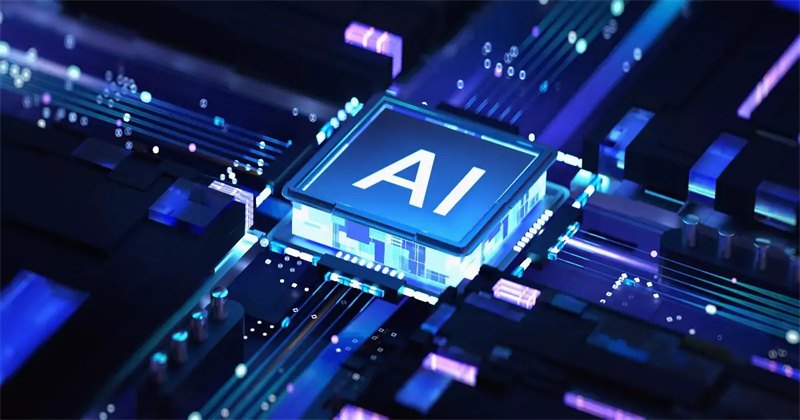AI Chip Startups Secure Funding to Compete with NVIDIA
NVIDIA has long been the undisputed leader in AI chips, but a wave of challengers is emerging with new strategies to capture market share. Several AI chip startups are securing major investments to develop alternative solutions, signaling an industry-wide push against NVIDIA's dominance.
Positron, a U.S.-based AI chip startup, recently announced a $23.5 million funding round from investors including Valor Equity Partners, Atreides Management, Flume Ventures, and Resilience Reserve. The company specializes in AI inference chips rather than training chips, a segment where demand is expected to surge as AI adoption expands.
Positron claims its Atlas system delivers 3.5x higher performance per dollar and 3.5x better power efficiency than NVIDIA's H100 GPU for inference tasks. Its FPGA servers optimize memory bandwidth usage at over 93% (compared to GPUs' 10-30%), support trillion-parameter models, and offer seamless compatibility with Hugging Face and OpenAI APIs. The company further highlights that its first-generation Atlas system is fully designed, manufactured, and assembled in the U.S., a strategic move amid geopolitical tensions.
Groq Secures $1.5 Billion Investment as a Potential NVIDIA Rival
Silicon Valley-based AI chipmaker Groq, founded by former Google TPU engineer Jonathan Ross, has reportedly secured a $1.5 billion investment from Saudi Arabia, marking a significant step toward expanding the supply of advanced AI chips. Groq is known for its Language Processing Unit (LPU), a chip optimized for executing pre-trained AI models at high speed.
Unlike other competitors focusing on both training and inference, Groq exclusively targets AI inference acceleration. With its OpenAI-compatible API, Groq is positioning itself as a viable alternative to closed AI models like GPT-4o. Analysts view this strategic focus as a key differentiator that could help Groq carve out a niche in the AI hardware market.
Meta Eyes Acquisition of South Korean AI Chip Startup Furiosa AI
Meta Platforms is reportedly in talks to acquire Furiosa AI, a South Korean fabless semiconductor company specializing in AI chips for data centers. The deal, if finalized, would strengthen Meta's AI chip development capabilities.
Founded in 2017 by former Samsung and AMD engineer Baek Joon-ho, Furiosa AI has developed two AI chips, Warboy and Renegade, with the latter launched in August 2023. Meta has been heavily investing in AI hardware, purchasing large volumes of NVIDIA AI chips while co-developing custom AI chips with Broadcom. The potential acquisition of Furiosa AI suggests Meta's intent to reduce reliance on external suppliers.
OpenAI Developing Custom AI Chip to Challenge NVIDIA
OpenAI is also joining the race to challenge NVIDIA, developing its first custom-designed AI accelerator. The chip is currently in the tape-out phase and is expected to enter mass production in 2026. OpenAI has partnered with Broadcom for ASIC development and TSMC for chip fabrication using its 3nm process.
Initially, OpenAI's custom chip will be used for AI inference tasks within its infrastructure, but its long-term goal is to become self-sufficient in AI hardware. While the project remains in its early stages, it represents another potential disruption to NVIDIA's dominance.
NVIDIA's Strengths and Emerging Competitors
While no company has yet matched NVIDIA's staggering market valuation, history has shown that even dominant players can lose their edge. NVIDIA's general-purpose GPU architecture, originally designed for parallel computing, may be reaching its limits. The latest Blackwell generation is already pushing the boundaries of TSMC's maximum reticle size, and future innovations may require costly chiplet architectures, increasing complexity and latency.
Several companies are working on purpose-built AI accelerators that eliminate GPU inefficiencies:
● Cerebras Systems: Developing wafer-scale chips with unprecedented memory bandwidth for AI training and inference. The Cerebras WSE-3 offers 44GB of on-chip memory and 21 petabytes per second of bandwidth, significantly surpassing NVIDIA's H100.
● SambaNova: Introducing Reconfigurable Dataflow Units (RDUs), designed to optimize AI workloads by organizing hardware around model computation graphs rather than sequential instructions.
● Etched AI: Creating transformer-optimized ASICs designed to run LLMs natively on silicon, potentially offering an efficiency breakthrough over GPUs.

Cloud Giants Develop In-House AI Chips
Meanwhile, major cloud providers—Google, AWS, and Microsoft—are also working on proprietary AI chips to reduce their reliance on NVIDIA.
● Google has been deploying its Tensor Processing Units (TPUs) for years, making them a preferred choice for cloud-based AI workloads.
● AWS has introduced Trainium and Inferentia AI chips, which are already integrated into Amazon's cloud services.
● Microsoft is expected to follow suit with its own AI chip initiatives.
While these proprietary chips are designed for internal use, their presence in the market adds to the growing pressure on NVIDIA.
Conclusion: The Battle for AI Chip Dominance Is Heating Up
The AI chip landscape is undergoing rapid transformation, with startups, tech giants, and cloud providers all striving to break NVIDIA's stronghold. While NVIDIA remains the clear leader, challengers are leveraging custom AI accelerators, alternative architectures, and strategic investments to reshape the industry.
For now, NVIDIA's dominance in AI training ensures its continued relevance, but as AI inference demand grows and alternative solutions mature, the battle for AI chip supremacy is far from over.
+86 191 9627 2716
+86 181 7379 0595
8:30 a.m. to 5:30 p.m., Monday to Friday
